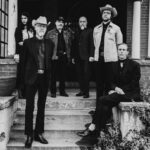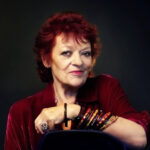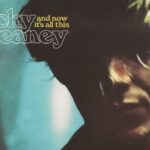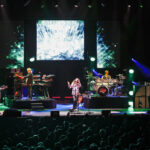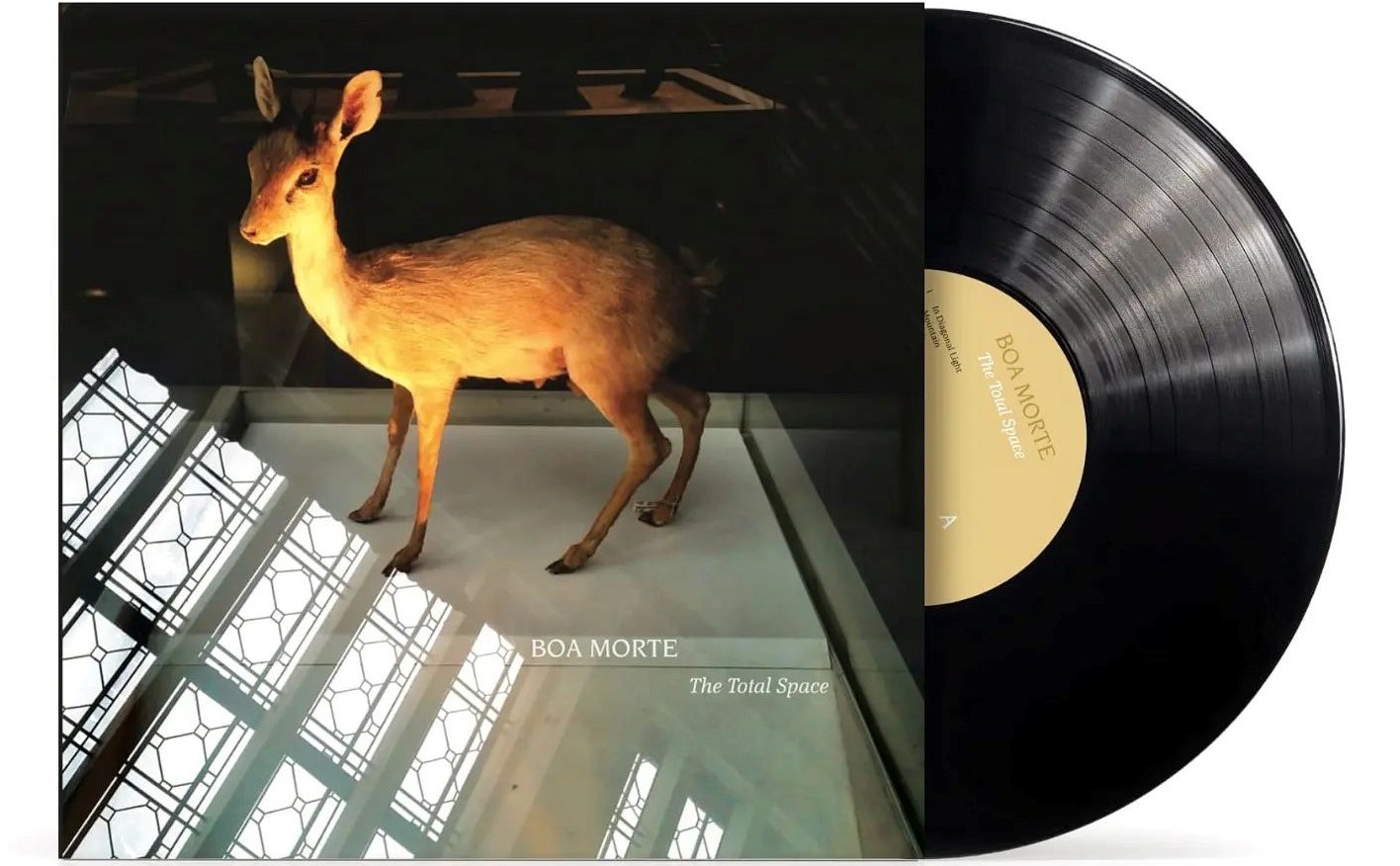
By Jason Barnard
I recently had the pleasure of interviewing Cormac Gahan from Boa Morte about their new album, The Total Space. Working closely with producer Daniel Presley, Boa Morte stay true to their essence while incorporating new elements of modern composition and ambient sound. The result is a collection of the best Boa Morte songs to date. This album could be interpreted as a cosmic distress signal or a remote aural beacon, encapsulating The Total Space in a unique and mesmerising way.
Can you tell us about the formation of Boa Morte and how the band has evolved over the years?
The four of us have known each other since University and used to hang out in a bar in Cork called the Liberty Bar which was a focus of the Cork music scene at the time. We were playing in different bands when we formed Boa Morte, initially due to a shared interest in Neil Young-influenced guitar/indie music. It was a few years later that the music quietened down as we were listening to acts like Songs:Ohia, Appendix Out and Smog as well as the burgeoning post-rock scene, all of which filtered its way into our collective psyche.
What was the inspiration behind your new album The Total Space and how did you approach the creative process?
The Total Space is almost entirely a product of writing and making music during the pandemic. Some of the songs were written or half-written just before the pandemic but everything was subsequently influenced by having more time to learn new technologies and experiment musically in ways that didn’t always involve meeting up every week. We each invested in new technologies (synths, pedals and software) and used them individually during lockdowns to write music, create drones and instrumental passages. Those pieces could then be added to our studio recordings (we recorded in Black Mountain Studios in late 2021) and that process drove some of the more experimental passages you can hear on the album.
Can you describe the sound and style of your music for someone who has never heard Boa Morte before?
I really like the description of our last album from one of the reviews “its as if Brian Eno’s Apollo, Atmospheres and Soundtracks had been recorded instead by Robert Wyatt and James Yorkston”. However, I think we’ve gone much further this time into the world of ambient/drone music. Stylistically it’s a combination of alt-folk songs with long instrumental passages and outros which even incorporates some contemporary classical or minimalism.
What are some of the themes and ideas explored in the lyrics of The Total Space?
There are two main songwriters Paul and myself (Cormac) and we both have a somewhat similar lyrical style. I wouldn’t say lyrics are a main focus but I’d hope they are evocative in some way without being overly specific. Definitely we tend to write about settings and landscapes in the abstract, and the words support the music rather than the other way around.
How did you come to work with producer Daniel Presley, and what did he bring to the recording process?
We had worked with Daniel on our first two albums and we were very familiar with his working process and attention to sonic detail. Even though he has moved from music into writing (he wrote the film scripts for the French films Populaire and The Translators) we felt it was the right time to re-introduce him to the studio! He is an excellent musician as well as producer so he has a finely-tuned musical ear which was important for the vocal takes and harmonies in particular. Working with Stephen Shannon on the mix was also a really important factor in shaping the final sound. Stephen writes and records cinematic contemporary electronica/minimalist music as Strands and as half of Mount Alaska and runs his own studio in Dublin. Having someone who is used to working with both a full band and synthesized electronic music/drones was important to us in order to tie the whole thing together, as those two worlds are usually quite separate.
What role did composer Justin Grounds play in the creation of “The Total Space”?
Justin is a classically trained multi-instrumentalist who runs a small studio in West Cork and who had played with us live prior to the pandemic. It was Justin who actually gave me my first tutorials (via Zoom) in the Ableton recording software that I purchased during the pandemic. We continued to work via Zoom to record string parts for the title track (The Total Space) and when one lockdown lifted we went down to his studio to record extra vocals for the album with Hilary Bow as well as trumpet.
Can you discuss some of the techniques you used to incorporate elements of ambient, drone, and synthesised sound into your music?
As we couldn’t meet up regularly we each recorded music on our home software setups and actually a lot of those home recordings ended up as overdubs on the final album. For what is quite a minimalist album some songs ended up with over 100 individual tracks (making life difficult for Stephen in the mix!). I bought a new synth called a Deepmind 12 which we layered up with guitar effects and software synths to create a lot of the sound washes. We even have some natural sounds recorded originally on mobile phones in the final mix, including the sound of Paul’s footsteps on a beach in West Cork. Bill (guitar in Boa Morte) was able to mix everything together on his recording setup into something coherent that we could use to guide the final mix.
How does The Total Space compare to your previous albums in terms of style and content?
I think we were already travelling in a certain direction, towards a more diverse sound palette and embracing longer instrumental passages. The circumstances that I’ve just described meant we had to work in a very different way using different technologies. Also with all those lockdowns we were probably branching out way more in our musical tastes. We all had the time to listen to a much wider variety of different musical genres and those influences have probably filtered into this album a bit more. So in terms of style I think this is a progression whilst still being recognisable as a Boa Morte album.
What is your approach to live performances, and how do you translate your studio sound to a live setting?
Its becoming more of a challenge but not an insurmountable one! We recently played a show in the University library for a cultural/arts event in Cork and we were able to utilise synths and laptops to complement the regular live instruments. It worked really well and was definitely a different listening experience to the usual drums, bass, guitar line-up. The problem is we don’t play that regularly and have long gaps between gigs, during which we have to learn it all again!
Can you discuss the significance of the album’s title, The Total Space?
The instrumental sections of the title track were written just after Mark Hollis died and there’s a sense perhaps that the entire album is about universal themes. I wouldn’t read too much into it though!
How do you balance experimenting with new sounds and styles while still staying true to the Boa Morte sound?
We spent a week recording just the band, mostly recorded live with all of us playing together, in Black Mountain studios with Daniel. We then added all the other layers on top of those recordings, so fundamentally the music is just the band in a room. That really helps keep everything true to the core sound.
How has your hometown of Cork influenced your music and creative process?
Cork has produced some excellent bands (Microdisney, Fatima Mansions, Frank and Walters, Sultans of Ping) but we are probably not considered to be typical of the Cork scene. Having said that, people in Cork have a great love of music and really support music of all genres and at the moment there is a very diverse, vibrant and thriving music scene here.
Can you tell us about some of the other artists and musicians who have influenced your work?
We’ve always considered American bands on labels like Drag City, City Slang, Merge etc as significant influences on our sound. Maurice (drummer in Boa Morte) is influenced by contemporary hip hop, Moor Mother and Billy Woods, and I think you can hear that in his distinctive drumming style. I’d say the last Mark Hollis solo album is a big influence too in terms of the ambience of the record. Recently we’ve been listening to instrumental music, spiritual jazzy stuff (Alice Coltrane to Alabaster de Plume), minimalist contemporary classical, Japanese ambient etc.
What are your plans for the future of Boa Morte, and what can fans expect from the band in the coming months and years?
We are planning some shows in Dublin and Cork and would hope to play some shows soon in the UK. Over the coming years we’ll see what the next record will bring. We have already written a bunch of songs that are starting to take shape and we’ll have to see where it takes us.
Finally, what message or emotion do you hope listeners take away?
Hopefully the new album is a bit of a journey from start to finish and works as a cohesive piece of music. Maybe that doesn’t suit the way people consume music these days but certainly it’s designed to be listened-to all the way through. It’s up to the listener to take what they want from it – hopefully a positive listening experience!
Further information
Boa Morte’s new album The Total Space is available on vinyl, CD and digital at boamorte.bandcamp.com
